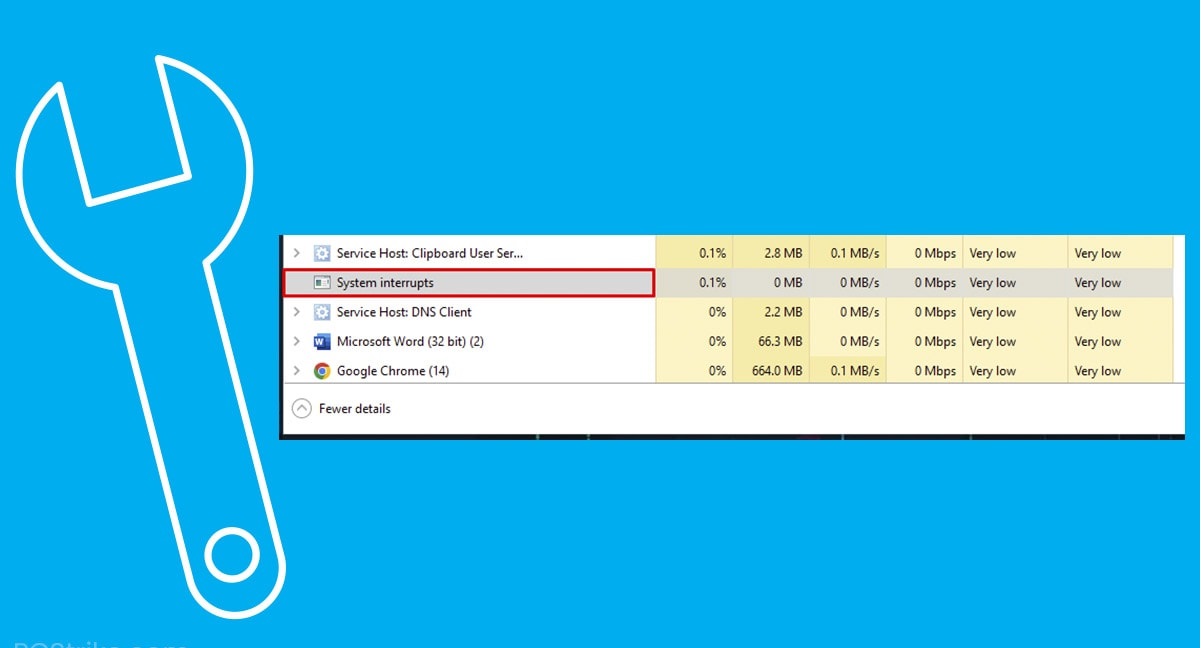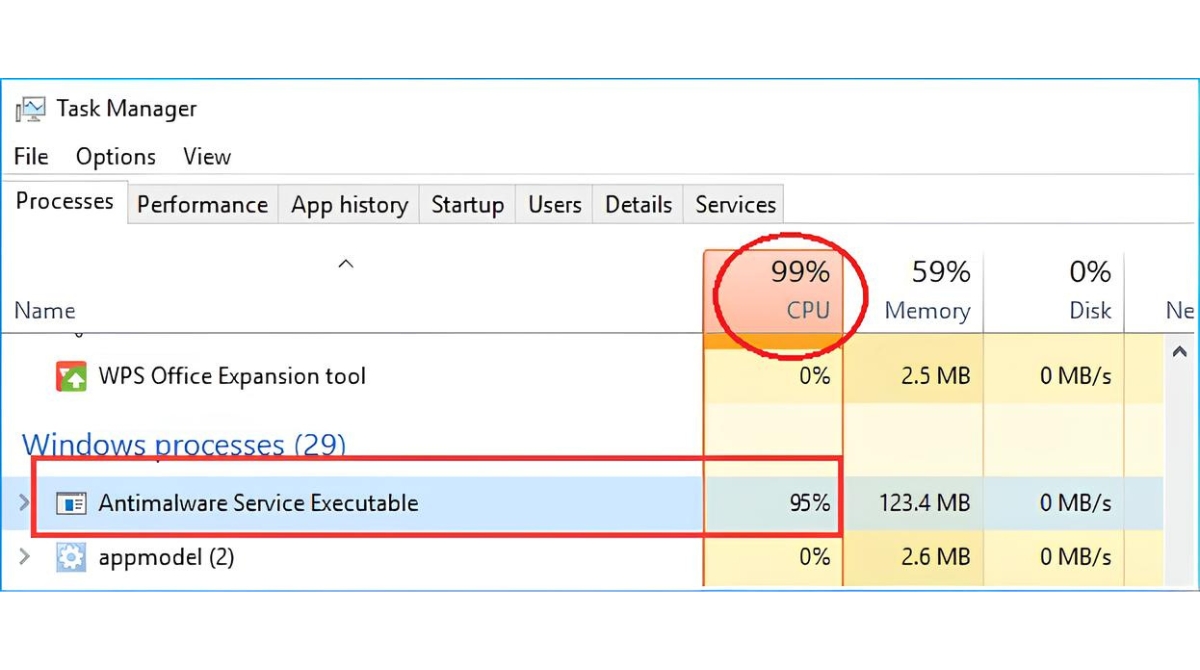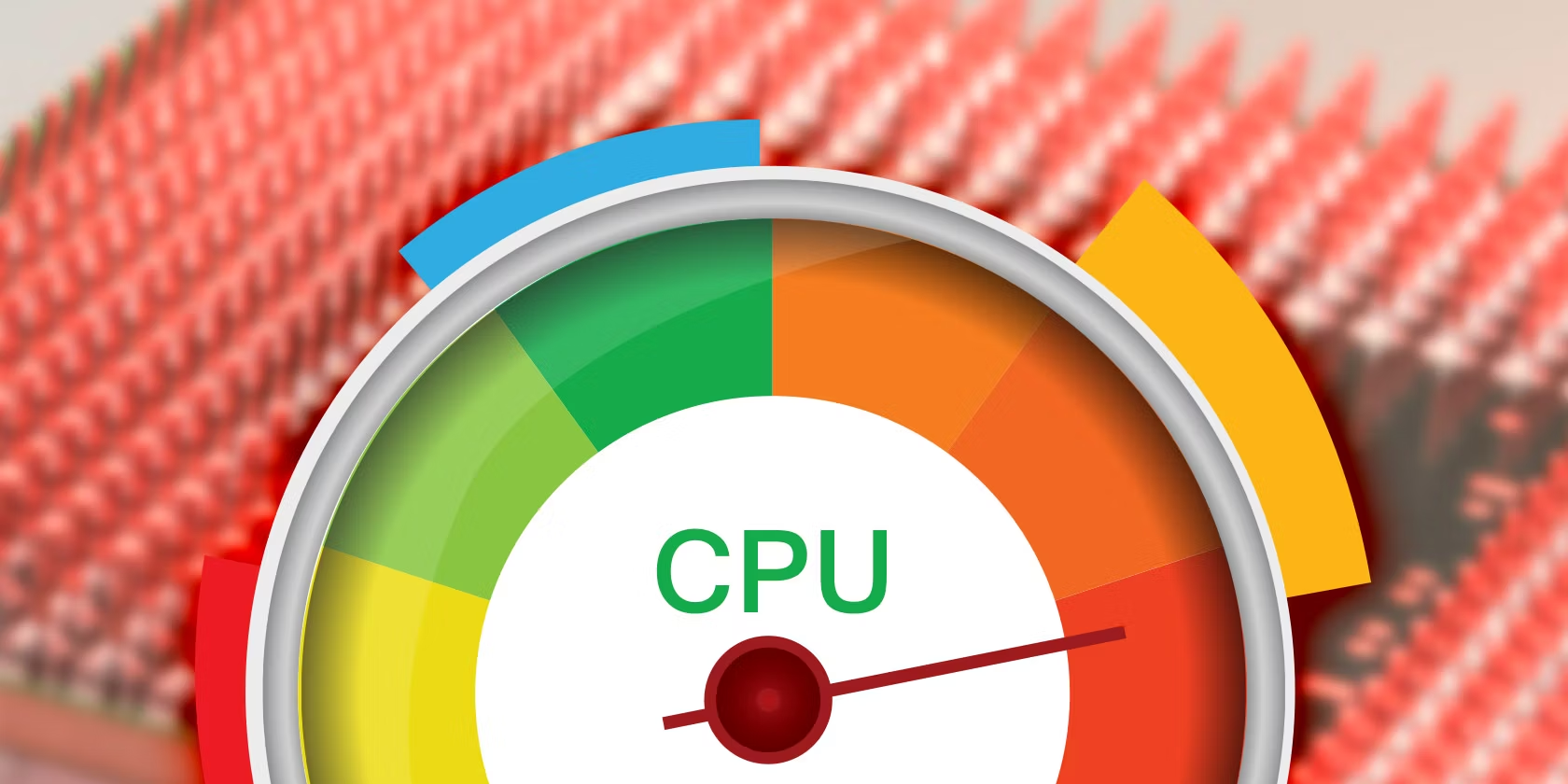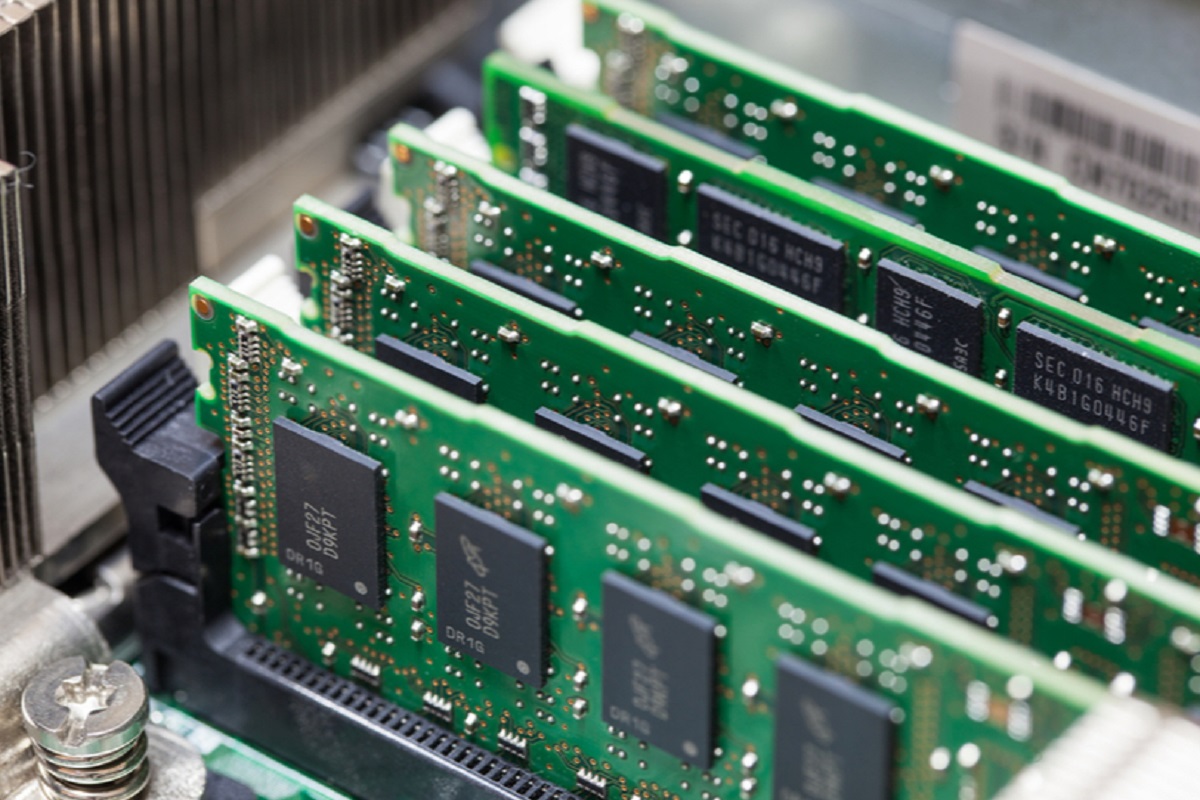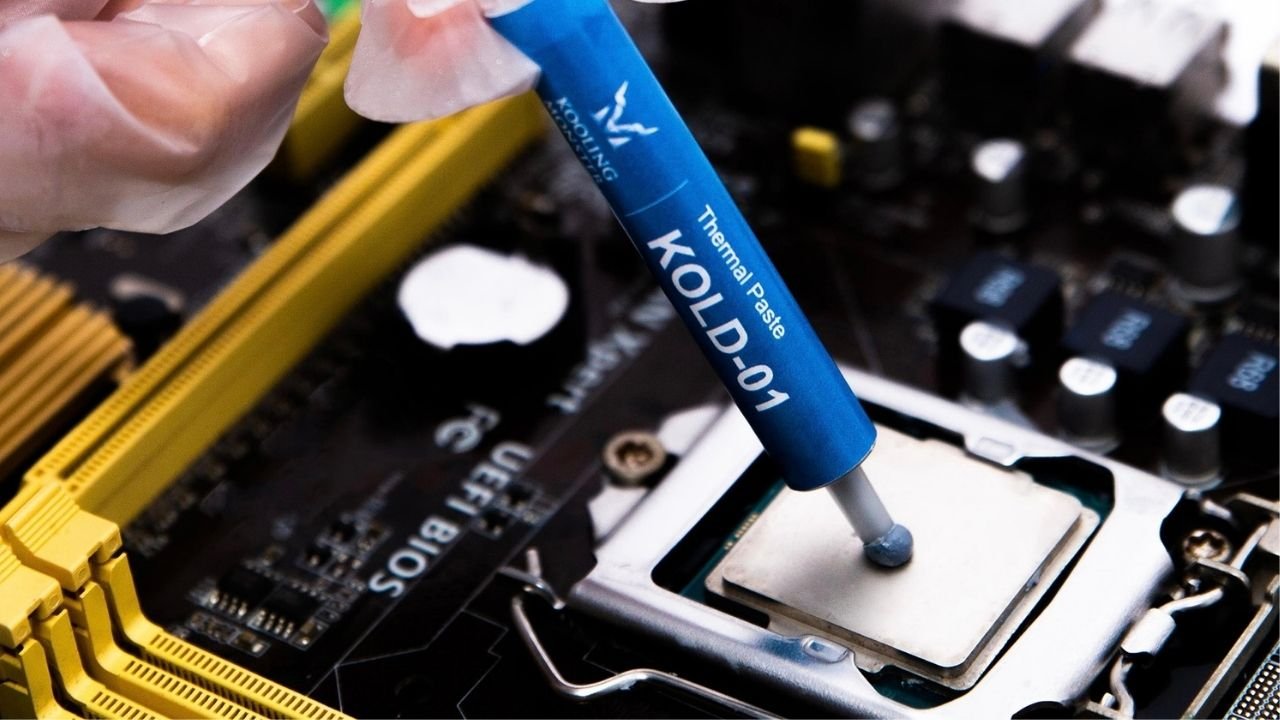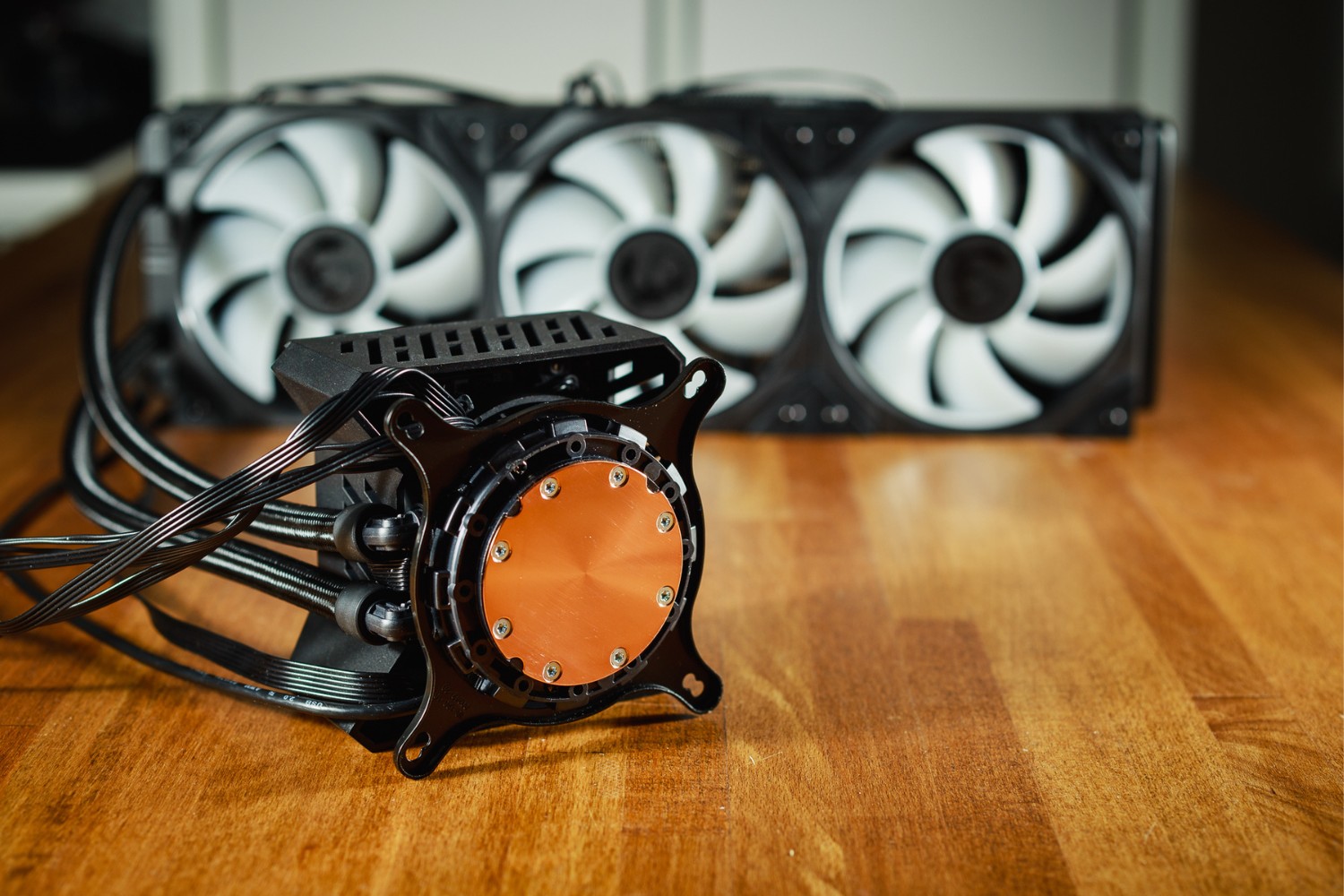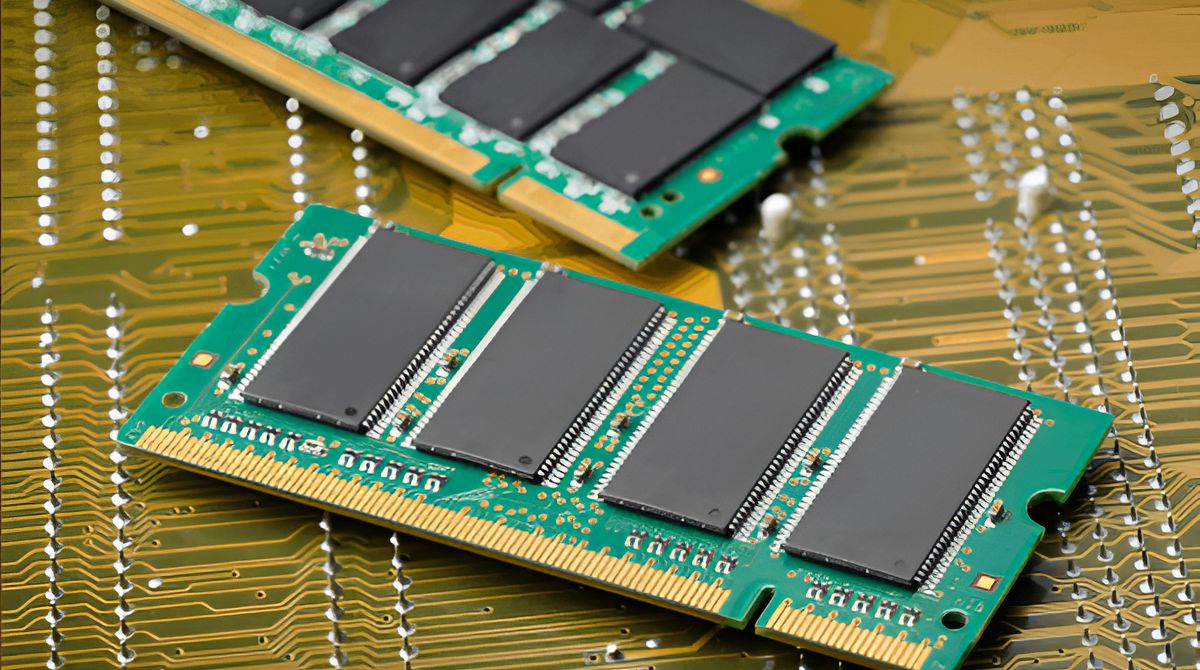Introduction
Welcome to this article on the topic of “Why Is System Interrupts Using So Much CPU?”. If you’ve ever noticed your computer’s CPU usage shooting up unexpectedly or your system slowing down, one possible culprit could be “System Interrupts”. In this article, we’ll explore what System Interrupts is, why it can lead to high CPU usage, and how you can resolve this issue.
System Interrupts is a crucial part of the computer’s operating system. It handles the communication between hardware devices and software, ensuring that data is transferred smoothly and timely. While System Interrupts are essential for the proper functioning of your system, excessive CPU usage by this process can be a cause for concern.
Excessive CPU usage by System Interrupts can lead to various issues, including overall system slowdown, unresponsive applications, and decreased performance. It is essential to understand the reasons behind this high CPU usage to address the problem effectively.
This article aims to shed light on the reasons why System Interrupts may use so much CPU and provide practical solutions to mitigate this issue. We will explore both hardware and software-related factors that can contribute to high CPU usage by System Interrupts. By the end of this article, you will have a clear understanding of why this issue occurs and how to resolve it, reclaiming the optimal performance of your computer.
What is System Interrupts?
Before diving into the reasons behind high CPU usage caused by System Interrupts, let’s first understand what System Interrupts actually are. In simple terms, System Interrupts refer to the mechanism by which hardware devices communicate with the processor of a computer. When a hardware device needs the attention of the CPU, it sends an interrupt signal, prompting the processor to temporarily halt its current task and attend to the request.
System Interrupts play a crucial role in ensuring efficient communication between hardware devices and software applications. They allow devices such as keyboards, mice, network adapters, and graphics cards to interact with the operating system and transfer data. This enables the system to respond to input from these devices and carry out the necessary actions.
Typically, System Interrupts consume a small percentage of CPU resources, representing the time spent handling hardware-related tasks. However, in some cases, System Interrupts may start consuming excessive CPU resources, leading to high CPU usage. This can result in system slowdown, laggy performance, and unresponsive applications.
It’s important to note that System Interrupts themselves are not the cause of the problem. Instead, high CPU usage by System Interrupts is usually an indication of an underlying issue with either the hardware or software components of your system. By identifying and resolving the root cause, you can effectively reduce the CPU usage caused by System Interrupts and restore your system’s optimal performance.
Why is System Interrupts using so much CPU?
The excessive CPU usage by System Interrupts can be attributed to various factors, both hardware and software-related. Identifying the root cause of this issue is crucial in order to effectively address the high CPU usage and improve your system’s performance. Here are some common reasons why System Interrupts may use so much CPU:
1. Hardware Issues: Faulty or outdated hardware components can cause System Interrupts to consume excessive CPU resources. This can include malfunctioning devices, outdated drivers, incompatible hardware, or issues with peripheral devices. When the hardware components don’t function properly, System Interrupts may continuously send interrupt signals, leading to increased CPU usage.
2. Software conflicts: Certain software applications or drivers can conflict with the operating system, causing System Interrupts to use more CPU resources than usual. This can occur due to incompatible drivers, poorly optimized software, or conflicts between different software running on your system. These conflicts can disrupt the normal functioning of System Interrupts and result in high CPU usage.
3. Malware or viruses: Malicious software infections can also cause System Interrupts to consume excessive CPU resources. Some malware or viruses may interfere with system processes, including System Interrupts, resulting in abnormal CPU usage. Running regular malware scans and keeping your system protected with up-to-date antivirus software is essential to prevent these issues.
4. Power management settings: Incorrect power management settings can also contribute to high CPU usage by System Interrupts. Some power-saving options may cause the system to prioritize certain processes, leading to increased CPU usage by System Interrupts. Adjusting power settings to achieve a balance between performance and power efficiency can help alleviate this issue.
5. Hardware conflicts: Incompatibilities between hardware devices can also lead to increased CPU usage by System Interrupts. This can occur when multiple hardware devices require simultaneous attention from the CPU, causing a bottleneck in processing. Ensuring compatibility between hardware components and resolving any conflicts can help reduce CPU usage by System Interrupts.
By understanding these underlying causes, you can take appropriate steps to resolve the high CPU usage by System Interrupts. In the next sections, we will explore methods to fix this issue and restore your system’s performance.
High CPU usage due to hardware issues
One of the common causes of high CPU usage by System Interrupts is hardware-related issues. Faulty hardware components or outdated drivers can disrupt the normal functioning of System Interrupts, leading to increased CPU usage. Here are some specific instances where hardware issues can contribute to high CPU usage:
1. Malfunctioning devices: A malfunctioning hardware device, such as a faulty network adapter or graphics card, can cause System Interrupts to use excessive CPU resources. When a device fails to communicate properly with the processor, it may result in frequent interrupt signals, leading to increased CPU usage.
2. Outdated drivers: Outdated or incompatible device drivers can also contribute to high CPU usage by System Interrupts. Drivers act as intermediaries between hardware devices and the operating system, facilitating communication. If the drivers are outdated or incompatible, they may cause System Interrupts to consume more CPU resources while trying to establish proper communication.
3. Incompatible hardware: Incompatibilities between hardware components can create conflicts and increase CPU usage by System Interrupts. For example, if two hardware devices require simultaneous attention from the CPU, it can result in a bottleneck, causing System Interrupts to utilize more CPU resources.
4. Overclocking: Overclocking, which involves running hardware components at higher frequencies than the manufacturer’s specifications, can lead to high CPU usage. When the CPU is overclocked, it generates more heat, triggering the system to allocate more resources to handle the increased temperature. This can cause System Interrupts to utilize a significant portion of the CPU resources.
5. Peripheral device issues: Problems with peripheral devices, such as an external hard drive or USB device, can also contribute to high CPU usage by System Interrupts. Faulty or incompatible peripherals may generate frequent interrupt signals, consuming a significant amount of CPU resources.
To address high CPU usage caused by hardware issues, consider the following steps:
– Update drivers for all hardware devices to ensure compatibility and optimal performance.
– Check for any hardware malfunctions and consider replacing faulty devices.
– Avoid overclocking unless necessary and ensure the system is adequately cooled.
– Disconnect peripheral devices one by one to identify if any specific device is causing the issue.
By addressing hardware-related issues, you can effectively reduce CPU usage by System Interrupts and improve your system’s performance.
High CPU usage due to software issues
In addition to hardware issues, high CPU usage by System Interrupts can also be caused by software-related factors. Certain software conflicts or poorly optimized applications can disrupt the normal functioning of System Interrupts, leading to increased CPU usage. Here are some common software-related issues that may contribute to high CPU usage:
1. Incompatible or outdated software: Incompatibilities between software programs or outdated software versions can cause conflicts, including with System Interrupts. These conflicts can result in increased CPU usage as the system tries to handle the software-related tasks. It is essential to keep all software applications up to date to prevent compatibility issues.
2. Poorly optimized software: Some software applications may not be optimized efficiently, leading to high CPU usage. These applications may have unnecessary background processes or excessive resource requirements, overwhelming the CPU and causing System Interrupts to consume more CPU resources. Opting for alternative software or updating to the latest version can help resolve this issue.
3. Background processes and services: Certain background processes and services running on your system may contribute to high CPU usage by System Interrupts. These can include antivirus scans, system updates, or other software-related tasks. Monitoring and managing these processes can help reduce the overall CPU usage and improve system performance.
4. Corrupted system files: Corrupted system files can lead to software issues, including high CPU usage by System Interrupts. Malicious software, sudden power outages, or system errors can cause file corruption. Running system file checks and repairing any corrupted files can help resolve these software-related issues.
5. Resource-intensive applications: Certain applications, particularly those that require heavy resources such as complex graphics processing or data analysis, can cause high CPU usage. If running resource-intensive applications leads to excessive CPU usage by System Interrupts, optimizing settings, or upgrading hardware components may be necessary.
To address high CPU usage caused by software issues, you can take the following steps:
– Keep all software applications updated to the latest versions.
– Monitor and manage background processes to reduce unnecessary CPU usage.
– Scan and repair corrupted system files using built-in system tools.
– Optimize settings or consider alternative software for resource-intensive applications.
By identifying and resolving software-related issues, you can effectively reduce CPU usage by System Interrupts, resulting in improved system performance.
How to fix high CPU usage caused by System Interrupts?
Experiencing high CPU usage caused by System Interrupts can be frustrating, as it can lead to system slowdown and decreased performance. Fortunately, there are several steps you can take to fix this issue and improve your system’s overall performance. Here are some effective solutions to address high CPU usage caused by System Interrupts:
1. Update device drivers: Outdated or incompatible device drivers can contribute to high CPU usage by System Interrupts. Updating drivers for all hardware devices, such as network adapters, graphics cards, or sound cards, can resolve compatibility issues and improve system performance.
2. Scan for malware: Malware infections can disrupt the normal functioning of System Interrupts and cause high CPU usage. Running a thorough malware scan using reliable antivirus software can help detect and remove any malware or viruses that may be impacting your system.
3. Adjust power management settings: Incorrect power management settings can cause System Interrupts to use excessive CPU resources. Adjusting power settings to balance performance and power efficiency can help reduce CPU usage. Avoid using aggressive power-saving options that prioritize certain processes and allocate more CPU resources to System Interrupts.
4. Unplug unnecessary devices: If you have multiple peripheral devices connected to your system, try unplugging them one by one to identify if any specific device is causing the high CPU usage. Faulty or incompatible peripherals can generate excessive interrupt signals, leading to increased CPU usage.
5. Perform a clean boot: A clean boot allows you to start your system with only essential services and drivers, eliminating any potential conflicts that may contribute to high CPU usage. By selectively disabling startup programs and non-essential services, you can isolate and resolve software-related issues.
6. Optimize software and applications: Some software applications may not be optimized efficiently, leading to high CPU usage by System Interrupts. Consider upgrading to the latest version or using alternative software if available. Additionally, check for any software updates and ensure that resource-intensive applications are properly configured to minimize CPU usage.
7. Check for hardware issues: If all software-related troubleshooting steps have been exhausted, it may be worth checking for any hardware issues that may be causing high CPU usage. This can include inspecting hardware components, ensuring compatibility between devices, and considering hardware upgrades if necessary.
By following these steps, you can effectively reduce high CPU usage caused by System Interrupts and restore your system’s performance. It is important to note that depending on the specific configuration and circumstances, certain solutions may be more effective than others. Feel free to experiment with different approaches or seek professional assistance if needed.
Conclusion
In conclusion, high CPU usage by System Interrupts can significantly impact your computer’s performance and cause system slowdown. Understanding the reasons behind this issue is crucial in order to effectively address it and improve your system’s overall performance.
We’ve explored the nature of System Interrupts and its role in facilitating communication between hardware devices and software applications. While System Interrupts are essential, excessive CPU usage by this process can be a cause for concern.
We’ve discussed various factors that can contribute to high CPU usage by System Interrupts, including hardware issues such as malfunctioning devices, outdated drivers, or compatibility problems. Additionally, software-related issues such as incompatible or poorly optimized applications, background processes, or corrupted system files can also lead to increased CPU usage.
To mitigate high CPU usage caused by System Interrupts, we’ve provided practical solutions. These include updating device drivers, scanning for malware, adjusting power management settings, unplugging unnecessary devices, performing a clean boot, optimizing software and applications, and checking for hardware issues.
By implementing these solutions and addressing the underlying causes, you can effectively reduce CPU usage by System Interrupts and restore your system’s optimal performance.
Remember, troubleshooting high CPU usage caused by System Interrupts may require some trial and error, as the specific causes can vary from system to system. If you’re unsure about any aspect of the process or if the issue persists, it’s always recommended to seek professional assistance.
By taking proactive measures to optimize your hardware and software components, you can ensure smoother system performance and a more enjoyable computing experience.







